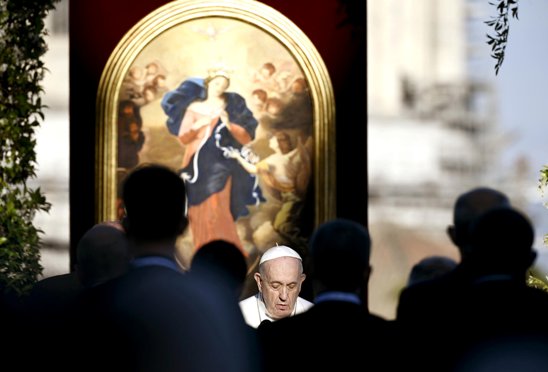Pope widens code to cover abuse of adults by priests and laity

By Jason Horowitz
ROME — Pope Francis has broadened the Roman Catholic Church’s definition of sexual abuse by revising its penal code to explicitly acknowledge that adults, and not only children, can be victimized by priests and powerful laypeople who abuse their offices and standing among the faithful.
The Vatican announced Tuesday (June 1) that Francis had made changes to the Vatican’s Code of Canon Law, the legal framework for the world’s 1.3 billion Catholics, after years of consultations. The revisions are part of the church’s continued process of seeking to address gaps in its response to the sexual abuse scandal that has devastated the Roman Catholic faith over the last quarter century.
The changes reflect a new appreciation in the church that power dynamics can be a key factor in abuse. Church law previously considered sexual relationships between clerics and consenting adults as sinful, but not a crime (although rape and assault were already considered crimes).
Francis has consistently viewed the clerical sexual abuse scandal of minors through the prism of priests abusing their power. The new rules extend that vision to adults.
Francis said last month that the new text the Vatican published Tuesday “introduces various modifications to the law in force and sanctions some new criminal offenses, which respond to the ever more widespread need in the various communities to see the re-establishment of justice and order broken by the crime.”
In recent years, Pope Francis seems to have made strides to overcome a dangerous blind spot when it comes to the plague of abuse. He has cracked down on the sexual abuse of minors bypassing church laws to punish bishops and religious superiors for negligence and failing to protect their flocks from predators.
In his remarks, he incorporated and added to those norms in the new law by writing that “it became clear” that after 14 years of study the penal code first proclaimed by St. John Paul II in 1983 needed to be revised.
“I hereby promulgate the revised text of Book VI of the Code of Canon Law as it has been ordered and revised,” Francis said.
One article of the new law makes it clear that abuse can extend to adults, and not just minors, and that a cleric “who by force, threats or abuse of his authority” violates the commandment against adultery, “or forces someone to perform or submit to sexual acts is to be punished” with penalties “not excluding dismissal from the clerical state if the case so warrants.”
The defrocking of a priest is among the most severe punishments in canon law.
Another article for the first time officially criminalizes the practice of building relationships with children in order to exploit them, often used by sexual predators. A cleric, the new law says, should also be removed from office and suffer other “just penalties” if he “grooms or induces a minor or a person who habitually has an imperfect use of reason” to engage in pornography “whether real or simulated.”
The new law also extends harsh penalties to lay leaders in the church who, though not priests, exercise considerable power by holding church office or by founding lay religious movements. While those people cannot be defrocked, they will be justly punished, the law says.
“A member of an institute of consecrated life or of a society of apostolic life, or any one of the faithful who enjoys a dignity or performs an office or function in the church, who commits” sexual abuse is to be punished “according to the gravity of the offense,” the law states.
In his remarks, Francis said he hoped the law would be applied to priests “when necessary, with justice and mercy,” adding that a pastor had the responsibility to “impose penalties when the good of the faithful demands it.”
The new law, which enters into force on Dec. 8, 2021, also improves technical aspects such as a right to defence, clarifies the statute of limitations for trying crimes and more clearly defines penalties and sentencing guidelines, Francis said.
The new guidelines remove the discretion given to bishops and other church leaders that allowed for offenders to sidestep accountability and church authorities to cover up abuse. The new law makes clear that the failure to investigate and punish offending priests will have consequences, and seeks to speed up a process that victims and their advocates have criticized as lengthy and cumbersome.
-New York Times

